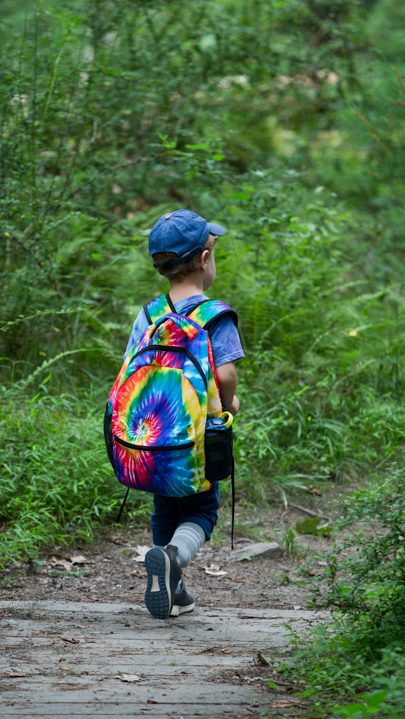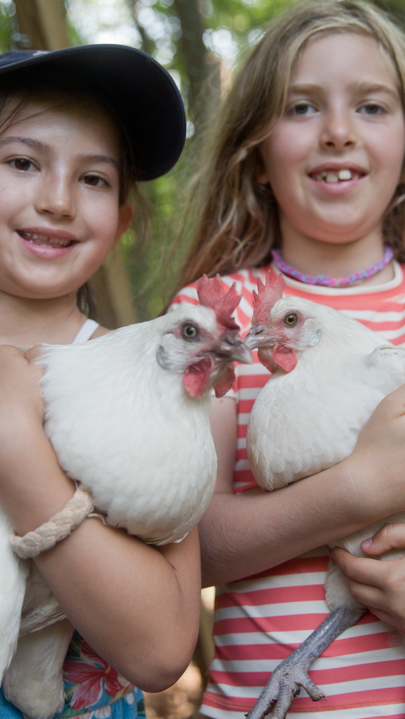Garbage Can Challenge – February Update

Ayla Dunn Bieber and Daniel Bieber write in collaboration this month, catching us up on their family’s mission to reduce their waste, and sharing some of the critical questions that’ve been on their minds and in their hearts.
As I’m sure we’ve all experienced, sometimes life throws you a curveball. Then you have to put down some of the other balls you’re juggling in order to focus on an important or unexpected challenge. This month was just that for my family. All is OK, but for a while it wasn’t – we were all in crisis-mode, overwhelmed by a family emergency. Naturally, this took our time and attention away from the rest of life, including our garbage challenge. Despite giving myself permission to buy certain ‘easier’ (but more heavily packaged) items, we didn’t exceed our goal tremendously – 3/4 of our garbage can was full instead of the hoped for 1/2.
It was harder than I thought it would be to go back to buying certain things that I had worked hard to give up. I found myself with a new level of anger about just how hard it is to get away from plastic. There’s got to be another way to package food!
Feeling lost in a sea of thought and plastic, I began to wonder: ‘Why is it so challenging to live a zero/low-waste lifestyle’? And ‘How do people do so when life presents a challenging, time-consuming event, or when all of life is an overarching state of crisis (i.e., poverty)’?
These thoughts led me to more thoughts:
What happens when our ideals meet reality? What do we do when stress, busyness, or struggle consume our ability to fully engage in our ideal? How do we compromise what we think is right with what is possible? And, what kind of culture requires that we must give time, money, and energy to be less destructive? What sort of society ask us to choose between dealing with life (a new baby, sick family member, overwork, poverty, illness, etc.) and having the time, money, and resources to be a less destructive consumer (to buy the right package-free products, to grow/make as much as we can, etc.)? I know that when the sh*t hits the fan in my life, I fall back on take-out food, whatever’s easy, and rely on meeting my needs through the fastest, least thought-consuming means of survival.
Being able to spend energy on reducing our household waste is a wonderfully privileged endeavor. It means we’ve had the time (albeit fought-after and fleeting) to think about more than how we’ll eat, live, or get through life to the next day. And what does it say about us (human beings, America) that to live eco-consciously and natural resource-consciously is positioned generally as either the lofty choice of the urban/suburban middle/upper class, or the non-choice of the poor, rural subsistence-farmer?
The truth is that this positioning is somewhat contrived. It is a by-product of the super influx of consumerism that has taken place over the course of just a few decades. In generations past, it was commonplace to re-use goods to the end of their life before disposing of them; and even then, to repair broken things instead of buying new ones; and to shop second-hand goods rather than purchase brand new ones. But as of late, new things–plastic things–have been made so inexpensive, things bought online and shipped from far away have become so cheap, packaged food has become so ubiquitous and is sometimes the only thing found in so-called ‘food deserts’, that suddenly it appears as though there is great effort and expense required in choosing other options. In some instances, that may very well be the case. But in many other situations, those other choices – to re-use something until you can’t re-use it anymore, to wrap a gift in newspaper rather than buy new wrapping paper, to opt-out of using a plastic straw (more on this below), or to take public transportation – still exist and are simpler than our consumer culture would lead us to believe.
So we ask ourselves: how do you catch a curveball while juggling? How do we reach for an ideal when mired in the reality of life? What it all comes down to, we’ve been thinking, is that we each just have to do our best and sometimes we have to temporarily shift our expectations. We’re asking ourselves, what are the simple tactics, the things people have been practicing for generations, that can be chosen even when we don’t feel like they’re making a huge difference. The important thing to keep in the back of our minds, is that every little bit counts.
With love,
Ayla and Daniel




